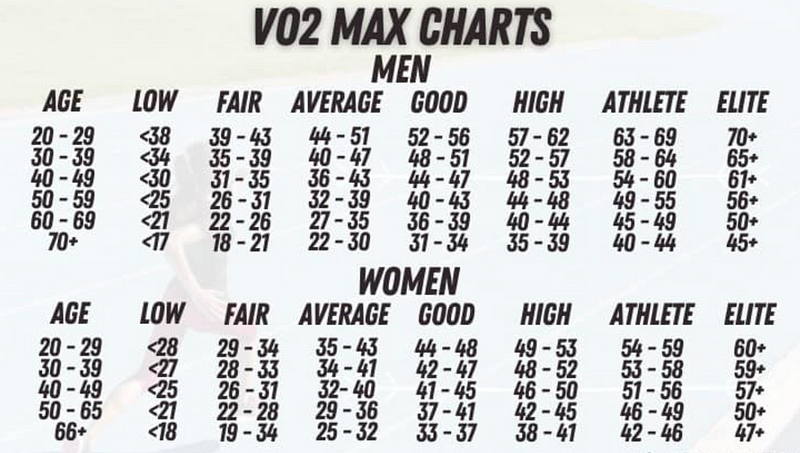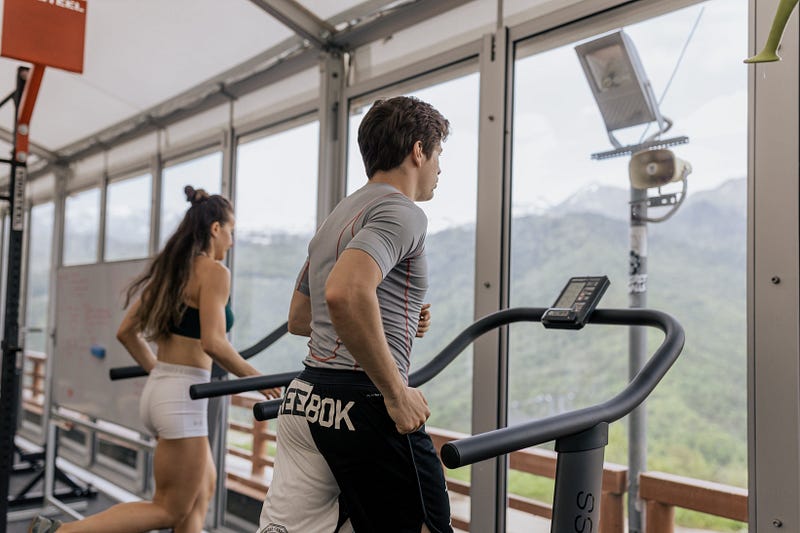Unlocking the Secrets of Lifespan: How to Control Your Health
Written on
Chapter 1: The Key to Lifespan Control
Many individuals concentrate on their current health, aiming for aesthetic goals like a toned physique or fitting into smaller clothing sizes. However, few delve into significant concepts such as ‘lifespan’ or ‘healthspan’, which encompass a broader perspective on health. As a kinesiologist and trainer, my primary advice is to prioritize sustainable health practices over temporary fixes.
The most crucial determinant of lifespan is V02max. This metric serves as a comprehensive measure of fitness and reflects the effort you've invested in your health. In simpler terms, V02max indicates your body’s maximum capability to consume oxygen during physical activity. It is calculated using the formula:
VO2 = SV x HR x (a-v O2 diff)
Where:
- SV = stroke volume (the amount of blood pumped by the heart with each beat)
- HR = heart rate
- a-v O2 diff = arteriovenous oxygen difference (the oxygen utilized by the body)
In essence, V02max is a benchmark of your overall functionality and your potential to lead an active, vibrant life.
“You can’t fake these metrics, and you can’t cram for the test.” — Dr. Peter Attia
While there are numerous methods to improve your health, it’s clear that the most valuable metrics are those that require consistent effort over time. Notably, V02max and grip strength rank as the top two indicators of longevity, reflecting your long-term discipline and activity. I would posit that maintaining a fulfilling social life also plays a significant role in longevity—again, an aspect that demands ongoing effort.
The encouraging news is that regardless of your current health metrics, you have the power to change your narrative. It may sound dramatic, but you are largely in control of your health destiny.

Chapter 2: Understanding V02max
Here’s a visual representation of estimated V02max levels according to age and sex. Ideally, you should aim for a ‘high’ rating on this scale. However, it's essential not to become overly fixated on the numbers. Many health professionals mistakenly urge clients to obsess over test scores, which can lead to two significant pitfalls:
First, focusing solely on the number often diverts attention from its underlying significance. Clients may strive to hit a specific metric, only to plateau upon reaching it without grasping the ‘why’ behind their goal. Second, obtaining an accurate V02max result typically necessitates lab testing. While estimations can be made, it is more beneficial to concentrate on cultivating habits that naturally enhance this metric.
By establishing the right routines, you can rest assured that both your V02max and overall health are improving, all without the stress of constant measurement.
As your dedicated kinesiologist, I aim to assist you in this journey. You don’t need to train like a professional athlete to see improvements. Even moderate, consistent cardiovascular exercise can significantly benefit your health. In the following sections, we’ll explore practical and approachable strategies for enhancing your aerobic health daily. These habits can transform your life, so take them seriously!
What is Cardio and How Can You Excel at It?
Cardiovascular exercise is often misunderstood. It extends beyond structured activities like running or cycling. In reality, cardio is accessible to everyone, regardless of fitness level or time constraints. You likely engage in more cardiovascular activities than you realize.
Many people mistakenly believe that only traditional endurance workouts count as cardio. However, any activity that elevates your heart rate qualifies as cardiovascular exercise. This includes a wide range of activities such as:
- Swimming
- Running
- Biking
- Yard work
- HIIT classes
- Climbing stairs
- Household chores
It’s crucial to recognize that various activities can effectively train your heart and lungs. As Matthew Boutte states, “Our muscles require oxygen to function, so when we exert them, our breathing and heart rate naturally increase to supply that oxygen.”
When engaging in weight training or other physical tasks, your cardiovascular system is still hard at work. A valid point is that some exercises are inherently more cardio-focused than others; for instance, a two-hour run will typically maintain an elevated heart rate more consistently than a weightlifting session. Nonetheless, all physical activity contributes to your cardiovascular health.
Why is this understanding vital?
My goal is to make improving your V02max as engaging and attainable as possible. You don’t have to be a marathon runner to lead a healthy life. Instead, focus on activities you enjoy and commit to them regularly. Join a community to hold each other accountable. Aim for at least 150-200 minutes of moderate to intense activity weekly, and you’ll be on the right track.
No, daily running isn’t a prerequisite for maintaining cardiovascular fitness. Whether your aim is to prevent chronic diseases or enhance performance, remember that various forms of cardio can support your goals. Instead of fixating on traditional cardio, discover what motivates you to move. Small choices throughout your day—like taking the stairs or parking farther away—can significantly impact your long-term health.

In Conclusion
You have a significant degree of control over your health. Treat aerobic activity as the essential medicine it is, and you’ll likely see improvements in nearly every facet of your wellness. Dedicate time and energy to this area, and you’ll enjoy the long-term rewards of an extended lifespan. Are you ready to seize control of your health like never before?
If you’re intentional, you can transform your life into a cardiovascular training experience. The journey is yours to navigate, so explore just how far it can take you.
The first video, "The Man Who Can Predict How Long You Have Left To Live (To The Nearest Month): Gary Brecka | E225", delves into the science of lifespan predictions and what factors truly matter in extending your time on this planet.
The second video, "You Can Live Longer!", offers insights into lifestyle choices and practices that can help enhance your longevity and overall health.